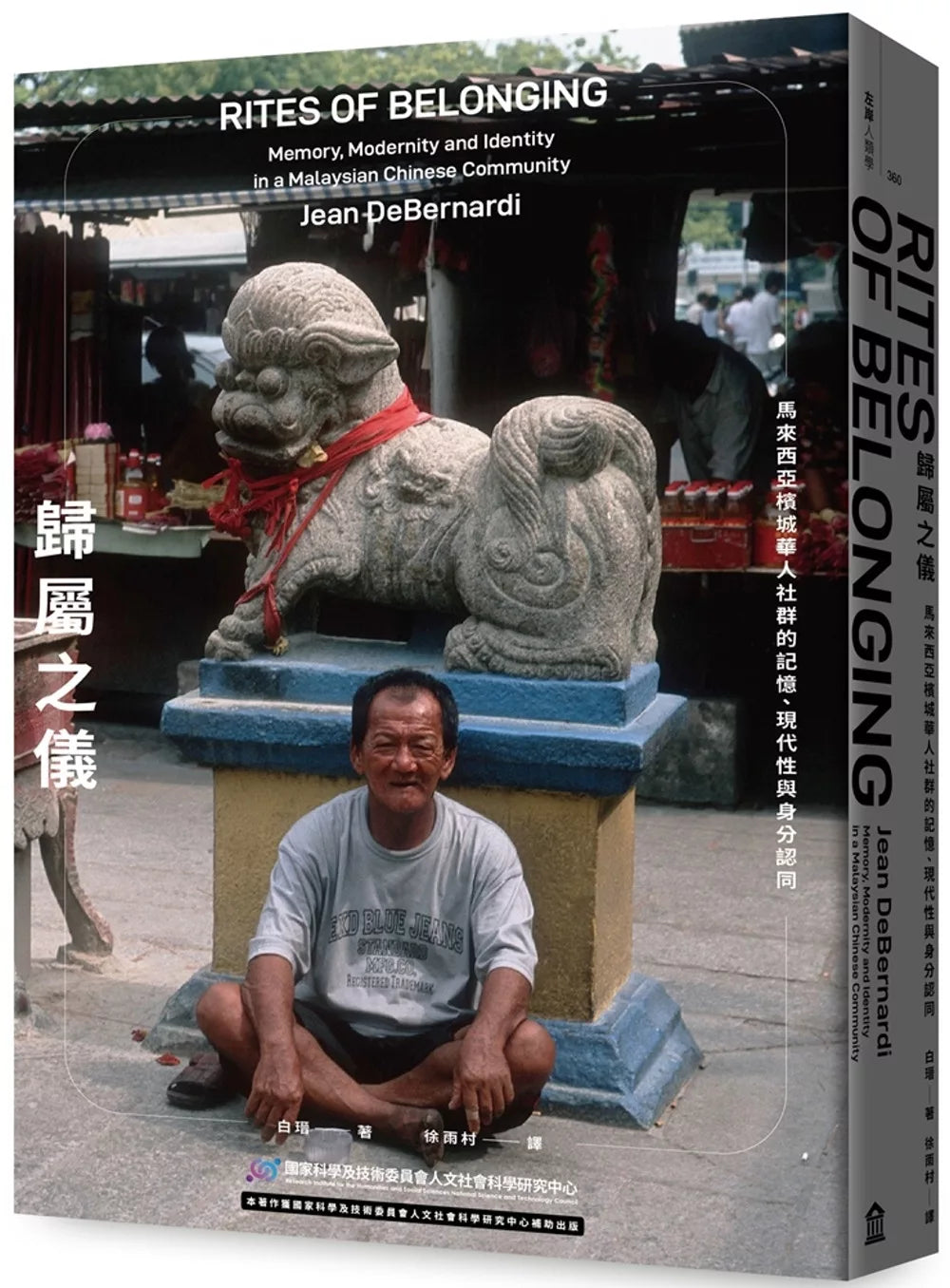1
/
of
1
Ceremony of Belonging
Ceremony of Belonging
Bai Jin Xu Yucun 译
Regular price
$34.99 USD
Regular price
Sale price
$34.99 USD
Unit price
/
per
Low stock
Couldn't load pickup availability
About Book
About Book
Rites of Belonging: Memory, Modernity and Identity in a Malaysian Chinese Community
In 1957, the Federation of Malaya declared independence, transforming the multi-ethnic and pluralistic society previously organized under the British Empire into a modern nationalist state. As in many post-colonial states, ethnic identity became a key principle underlying the political system of this new nation. Also like many British colonies, ethnic consciousness in colonial Malaysia was the product of "the encounters and interactions among various groups within it," where "they used cultural means to deliberately mark differences and inequalities in power, economic status, political ambitions, and historical imaginations."Chinese temples and festivals are crucial aspects of this culture. They not only serve as a means for Chinese immigrants to establish their social presence, organize social life, and demonstrate their economic strength, but also through cultural practices, they convey social memories and create a "memory theater" belonging to their ethnic group.
In 1979, anthropologist Bai Jin traveled to Penang to conduct ethnographic research on traditional Chinese beliefs. During her fieldwork, she learned both Mandarin and the Malay-mixed Hokkien dialect. She sought to construct narratives about faith and identity from the lives of Penang's Chinese—spiritual mediums, Taoist priests, temple management committees, and even politicians. However, this fieldwork shifted after she arrived in Taiwan in 1987. There, she realized that the political attitudes of Taiwanese Hokkien were shaped by the traumatic events surrounding Taiwan's transition from Japanese rule to the Kuomintang occupation and Chiang Kai-shek's loss of mainland China. Penang's over 150 years of British colonial rule, followed by the creation of the nation-state of Malaysia in 1957, have shaped the social memories, rituals, and sociopolitical strategies of the Chinese in Penang. She decided to incorporate historical literature from the British colonial period, attempting to explore the issues of ethnic belonging faced by the Chinese in Penang from 1786 to the 1990s from an anthropological perspective.
Bai Jin attempts to rewrite - and reinterpret - the history of the Chinese in Penang from an anthropological perspective and with anthropological knowledge.
This book is divided into two parts, following a historical context. The first, "Religion and Society in Colonial Penang," explores the localization of Chinese society in Penang and their responses to British colonial "governance" from a historical anthropological perspective. The second, "Religion and the Politics of Ethnic Revitalization in Contemporary Penang," focuses on another turning point: the 1963 independence of Singapore, North Borneo, and Sarawak from British rule, and the formation of Malaysia with the Federation of Malaya. The subsequent May 13 Incident of 1969 and the New Economic Policy of 1970 relegated the Chinese to a second-class status under the Bumiputera/non-Bumiputera divide. Faced with this major identity crisis, the Chinese community has actively responded to political tensions through folk activities, finding a vehicle within traditional cultural festivals to enhance shared Chinese consciousness and attempting to redirect national policy towards territorial nationalism.
Faced with the political domination of the British colonial government and the post-colonial nation-state of Malaysia, the Chinese in Penang attempted to shape social memory through communal rituals, further construct their subjectivity, and reconcile it with the values of modernity, pursuing an independent and contemporary identity.
This is the story of the Chinese in Penang searching for identity; it is also an ethnographic work that uses the Chinese in Penang as an example to further reflect on Chinese diaspora, ethnic belonging, historical memory, modernity and identity.
Publication Date
Publication Date
2023-12-27
Publisher
Publisher
左岸文化
Imprint
Imprint
Pages
Pages
560
ISBN
ISBN
9786267209707
share

